Home> Company News> 8 Incredible Benefits Of Practicing Compensator Valve Operation
- AddressNorth Tan Street, Jinan,Shandong
- Factory Address123 Ubi Ave 3 #12-30 Frontier Singapore 408867
- Worktime9:00-18:00(Beijing time)
- Phone(Working Time)86 0531-8299 9952
Hydraulic systems are an essential part of many industries, including construction, agriculture, and mining. These systems rely on the precise control of fluid flow and pressure to power heavy machinery and equipment. One important component in hydraulic systems is the compensator valve.A compensator valve is a type of pressure control valve that maintains a constant pressure in a hydraulic system, regardless of changes in flow rate or load. It works by adjusting the flow of fluid in the system to compensate for changes in pressure, ensuring that the system operates efficiently and effectively.In this article, we will explore the operation of compensator valves in hydraulic systems and the benefits they provide in terms of increased efficiency, improved system control, increased lifespan, reduced maintenance costs, enhanced safety, increased productivity, reduced downtime, and improved performance.

1. Increased Efficiency
Compensator valves are critical components in hydraulic systems that help to regulate the flow of hydraulic fluid, ensuring that the system operates at the desired pressure level. By doing so, compensator valves can significantly improve the efficiency of hydraulic systems.
One of the ways that compensator valve operation can increase hydraulic system efficiency is by reducing the amount of energy consumed. In hydraulic systems, pressure is created by pumping hydraulic fluid into the system. If the pressure in the system is too high, it can result in unnecessary energy consumption. Compensator valves help to prevent this by regulating the pressure in the system, ensuring that only the necessary amount of energy is used.
Compensator valves can also help to reduce energy consumption by preventing the system from operating at excessive pressures. When the pressure in a hydraulic system is too high, it can cause unnecessary wear and tear on system components, leading to increased energy consumption and reduced efficiency. By regulating the pressure in the system, compensator valves can help to prevent this, ensuring that the system operates at optimal levels of efficiency.
Overall, compensator valve operation is a critical factor in maximizing the efficiency of hydraulic systems. By regulating pressure and flow rates, compensator valves can help to reduce energy consumption and improve the overall performance of hydraulic systems.
2. Improved System Control
The compensator valve plays a vital role in controlling hydraulic systems, allowing for greater precision and accuracy in system performance. By regulating the flow of fluid, the compensator valve can control the pressure and speed of hydraulic cylinders, motors, and other components. This level of control is essential in applications that require precise movements, such as in the construction and manufacturing industries.
One of the main advantages of compensator valve operation is its impact on system response time. With a compensator valve in place, hydraulic systems can respond quickly to changes in load and pressure, ensuring that the system operates at the desired level. This rapid response time is critical in applications where speed and precision are essential, such as in the production of delicate electronic components or the movement of heavy machinery.
In addition to improving response time, compensator valve operation can also enhance system control by allowing for greater accuracy in pressure and flow rate regulation. By ensuring that the system operates at the desired pressure and flow rate, compensator valves can minimize the risk of system failures, malfunctions, and other issues that could impact system performance.
Overall, the improved system control provided by compensator valve operation can lead to more efficient and effective hydraulic systems. This increased control can help businesses and industries improve their operations by reducing waste, increasing productivity, and improving overall system performance.
3. Increased System Lifespan
One of the primary advantages of compensator valve operation in hydraulic systems is its ability to prolong the lifespan of the system. This is because the compensator valve helps prevent damage to system components and ensures that the hydraulic fluid is kept at the correct pressure and flow rate.
One of the main causes of system failure in hydraulic systems is overloading. Overloading can occur when the hydraulic system is subjected to pressure or flow rates that are higher than what it is designed to handle. This can cause significant damage to system components and result in costly repairs or replacements.
The compensator valve helps prevent overloading by regulating the flow rate and pressure of the hydraulic fluid. It ensures that the fluid is maintained at the correct pressure and flow rate, even when the load on the system varies. This helps prevent damage to system components and ensures that the system operates efficiently and reliably over a longer period of time.
In addition to preventing overloading, the compensator valve also helps prevent other types of damage to hydraulic systems. For example, it can prevent damage from cavitation, which can occur when the pressure of the hydraulic fluid drops below a certain level, causing bubbles to form in the fluid. These bubbles can then collapse, causing shock waves that can damage system components. The compensator valve helps prevent cavitation by regulating the pressure of the hydraulic fluid and ensuring that it remains within a safe operating range.
Overall, the increased system lifespan provided by compensator valve operation can result in significant cost savings for businesses and industries that rely on hydraulic systems. It can reduce the frequency of repairs and replacements, and help ensure that the system operates reliably and efficiently for years to come.
4. Reduced Maintenance Costs
Compensator valve operation can lead to reduced maintenance costs in hydraulic systems. By regulating fluid flow and pressure, the valve helps minimize wear and tear on system components, reducing the frequency of maintenance and repair. With less need for replacement parts and repair services, businesses can save money on maintenance costs and extend the lifespan of their hydraulic systems.
Furthermore, compensator valves can help prevent damage to hydraulic systems by reducing the risk of system overload and component failure. Overloaded systems are more likely to experience breakdowns and require costly repairs, whereas well-maintained systems with properly adjusted compensator valves can operate at optimal efficiency and experience fewer issues.
Proper maintenance of compensator valves is also crucial in reducing maintenance costs. Regular inspection and cleaning can help prevent buildup of debris or contaminants that can interfere with valve operation. If issues do arise, such as leakage or damage to valve components, prompt repair or replacement can prevent further damage to the hydraulic system and avoid costly downtime.
Overall, investing in high-quality compensator valves and maintaining them properly can help businesses reduce their maintenance costs and improve the efficiency and reliability of their hydraulic systems.
5. Enhanced Safety
One of the most critical benefits of compensator valve operation in hydraulic systems is the enhanced safety it provides. Hydraulic systems can be hazardous and potentially dangerous if not operated correctly. One of the main risks associated with hydraulic systems is the possibility of system failure, which can lead to accidents and injuries.
Compensator valves play a crucial role in preventing system failures and ensuring the safety of hydraulic systems. By regulating fluid pressure and flow rate, compensator valves help prevent damage to system components and minimize the risk of system failure. This, in turn, helps prevent accidents and injuries and enhances the safety of hydraulic system operations.
Moreover, compensator valves can help prevent sudden pressure surges in hydraulic systems. Sudden pressure surges can cause system failures and damage to system components, leading to accidents and injuries. Compensator valves can help prevent these pressure surges by regulating fluid pressure and flow rate, thus reducing the risk of system failures and accidents.
In addition, compensator valves can help prevent leaks in hydraulic systems. Leaks can cause system failures and potentially hazardous situations. By regulating fluid pressure and flow rate, compensator valves can prevent leaks in hydraulic systems and enhance their safety.
Overall, the enhanced safety provided by compensator valve operation in hydraulic systems is essential for ensuring the safety of workers and preventing accidents and injuries. By preventing system failures, sudden pressure surges, and leaks, compensator valves help minimize risks associated with hydraulic system operations and enhance the safety of the workplace.
6. Increased Productivity
One of the most significant benefits of compensator valve operation in hydraulic systems is increased productivity. By regulating the flow and pressure of hydraulic fluid, compensator valves help optimize system performance and speed. This allows hydraulic systems to operate more efficiently, completing tasks more quickly and with greater accuracy.
In industries such as construction, manufacturing, and transportation, where speed and precision are crucial, the use of compensator valves can make a significant difference in productivity. By ensuring that hydraulic systems are working at peak efficiency, businesses can reduce production time and increase output, ultimately leading to increased revenue and profitability.
In addition, compensator valves can also improve the productivity of hydraulic systems by reducing the need for manual adjustments and maintenance. Because compensator valves automatically adjust the flow and pressure of hydraulic fluid, they can minimize the need for human intervention in the system. This not only saves time and resources but also reduces the risk of human error, which can cause downtime and lost productivity.
Overall, the increased productivity provided by compensator valve operation can have a significant impact on the success of businesses and industries that rely on hydraulic systems. By maximizing system efficiency and speed, compensator valves can help these organizations increase output, meet demand, and stay competitive in the marketplace.
7. Reduced Downtime
In any hydraulic system, downtime can be a major issue. It can cause delays, reduce productivity, and increase costs. Compensator valve operation can help reduce downtime by minimizing system failures and delays.
One of the main causes of downtime in hydraulic systems is component wear and tear. When system components, such as pumps and motors, are subjected to excessive stress or strain, they can fail or malfunction, causing the system to shut down. Compensator valve operation can help prevent this by regulating fluid pressure and flow rate, which helps to minimize stress and strain on system components.
Compensator valve operation can also help reduce downtime by improving system response time. In a hydraulic system, response time is the time it takes for the system to respond to changes in load or demand. A slow response time can cause delays and reduce productivity. Compensator valve operation can improve system response time by regulating fluid pressure and flow rate, which helps to ensure that the system responds quickly and efficiently to changes in load or demand.
Another way that compensator valve operation can help reduce downtime is by minimizing the need for system maintenance. When system components are subjected to excessive stress or strain, they can wear out or break down, requiring repair or replacement. By regulating fluid pressure and flow rate, compensator valve operation can help minimize wear and tear on system components, which can help extend their lifespan and reduce the need for maintenance.
Overall, the reduced downtime associated with compensator valve operation can have a significant impact on the productivity and efficiency of hydraulic systems. By minimizing system failures, improving response time, and reducing the need for maintenance, compensator valve operation can help ensure that hydraulic systems are running at peak performance, with minimal interruptions or delays.
8. Improved Performance
Compensator valves are essential components in hydraulic systems as they regulate pressure and flow rates, which are key factors in ensuring the system operates at optimal levels. By maintaining the correct pressure and flow rates, compensator valves can improve system performance in several ways.
One of the primary ways compensator valves can enhance system performance is by improving the efficiency of the hydraulic system. When the compensator valve is correctly adjusted, it ensures that the pressure and flow rates remain within the recommended range, reducing energy consumption and minimizing wastage. This results in increased system efficiency, reduced operating costs, and improved environmental sustainability.
Additionally, compensator valves can improve system control and precision. When the valve is properly calibrated, it can regulate the pressure and flow rate with high accuracy and speed, improving system response time. This is particularly important in applications that require fast and precise movements, such as in manufacturing or construction equipment.
Another way compensator valves can enhance system performance is by increasing system productivity. By regulating the pressure and flow rates, the valve ensures that the system operates at optimal levels, maximizing the speed and efficiency of operations. This can result in increased output, reduced lead times, and improved overall productivity.
Finally, compensator valves can also help extend the lifespan of hydraulic systems. By preventing pressure and flow rate fluctuations, the valve reduces the wear and tear on system components, reducing the risk of damage and system failure. This can lead to fewer breakdowns, reduced downtime, and increased system longevity.
Overall, the proper operation of compensator valves is essential in ensuring the optimal performance of hydraulic systems. By regulating pressure and flow rates, these valves can enhance system efficiency, control, productivity, and lifespan, resulting in improved system performance and reduced operating costs.

Compensator valves are essential components of hydraulic systems, offering numerous benefits that can help businesses and industries improve their operations. In this article, we have explored the various advantages of compensator valve operation in hydraulic systems, including increased efficiency, improved system control, increased system lifespan, reduced maintenance costs, enhanced safety, increased productivity, reduced downtime, and improved performance. By understanding these benefits and implementing compensator valves in their hydraulic systems, businesses can optimize their operations, minimize downtime, and improve their bottom line.


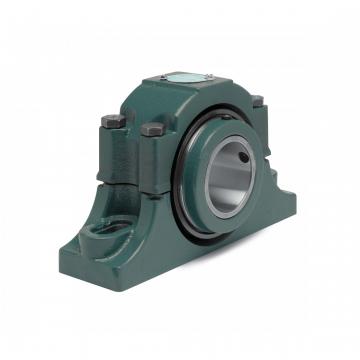 Mounted Tapered Roller Bearings P4B-EXL-212RE
Mounted Tapered Roller Bearings P4B-EXL-212RE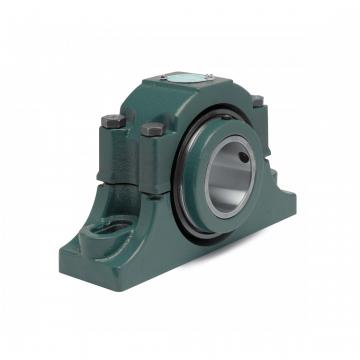 Mounted Tapered Roller Bearings P4B-EXL-400R
Mounted Tapered Roller Bearings P4B-EXL-400R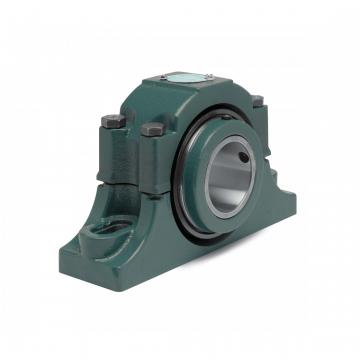 Mounted Tapered Roller Bearings P4B-EXL-400RE
Mounted Tapered Roller Bearings P4B-EXL-400RE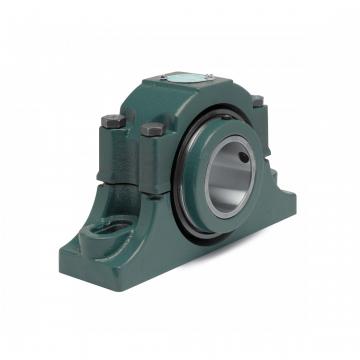 Mounted Tapered Roller Bearings P4B-EXL-315RE
Mounted Tapered Roller Bearings P4B-EXL-315RE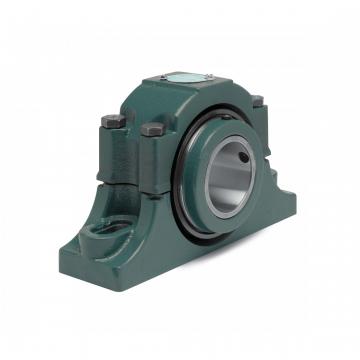 Mounted Tapered Roller Bearings P4B-EXL-207RE
Mounted Tapered Roller Bearings P4B-EXL-207RE